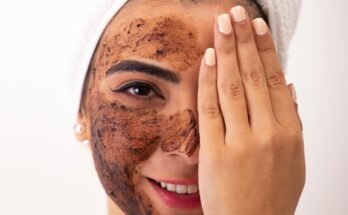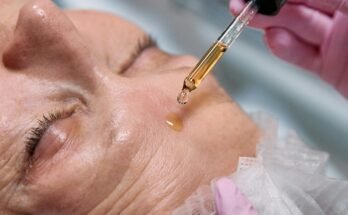In today’s fast-moving world, one’s mental health is just as important as one’s physical health. Most people don’t know that it’s not just in terms of one’s mood or energy level where the state of one’s mental health manifests, but it’s also in one’s skin. Our skin often reflects what’s going on with breakouts from stress to dark circles. This article will look into the interesting connection between mental health and skin, and what one is able to do to support both.
The Skin-Mind Connection: What’s Really Going On?
The skin is the largest organ of the human body and is intimately linked with the body’s other systems, which include the brain and nervous system. When we’re stressed, anxious, or otherwise embattled, the body releases a spate of stress hormones such as cortisol and adrenaline into the bloodstream. These do some good in small doses-they can help you get through that fight with your boss or across that scary bridge-but chronic stress can result in lousy skin. Here’s how:
Cortisol and Stress
High levels of cortisol due to chronic stress make the skin produce more oil, which may block up pores and cause outbreaks. It also encourages inflammation that can worsen conditions such as eczema, psoriasis, and rosacea.
Anxiety and Immunity
Anxiety can suppress the activity of the immune system, making skin more vulnerable to infection and reducing the speed of healing. This means that blemishes and inflammation of the skin take some time to clear up.
Poor Sleep and Skin Health
Poor mental health often infringes on sleep, which is highly important for the skin as it repairs and regenerates. Inadequate sleep can cause an Acute condition whereby the skin may appear dull and will even develop dark circles, showing more signs of wrinkling.
Habits and Routines
As mentioned, it also can affect one’s routine, and that includes skincare. When you are stressed or anxious, it’s in one’s nature not to follow through with a skincare routine, or simply just forget about it, which over time will build impurities, miss hydration, and more skin concerns.
Touching, Picking, or Scratching
For others, when they feel anxious, the urge to touch, pick, or scratch aggravates the skin so much as to cause scarring. Skin picking, also known as dermatillomania, may worsen skin issues and be a condition that will have to call for professional support.
Practical Ways to Look After Mental Health and Skin
One size does not fit all, but here are a few ideas on how you can take care of both your mind and your skin:
Sleep Is Paramount
Good sleep means your skin can begin its repair process. You need to have between 7-9 hours each night. Furthermore, get yourself into a sleep-conducive bedtime routine: wind down without screens and practice mindfulness.
Follow a Gentle Regimen
During very stressful times, scale down your skin care routine to just a few gentle skin care must-haves, such as cleanser, moisturizer, and SPF. Avoid harsh exfoliants or treatments; skin under stress can be more sensitive.
Mindfulness and Relaxation
Methods of relaxation such as meditation, deep breathing exercises, or gentle yoga help lower levels of cortisol. Even a few minutes a day spent being more mindful can support clarity of mind, where stress-related skin issues will be minimal.
Consider Your Diet
A diet full of antioxidants, vitamins, and lots of water can help your skin be as healthy as possible from the inside out. Omega-3 fats are some of the best ones for reducing inflammation. Fish is an amazing source, along with nuts and seeds.
Seek Professional Support if Needed
Mental health is best supported with professionals, especially if it is affecting the skin. It is important to speak with a therapist or dermatologist, or even try mindfulness apps, which perhaps could give a releaser for your mind and skin.
Keep Hydrated and Use Barrier-Repairing Products
In skin hydration, all the difference is made when the weariness gets mental. Such are ceramides, glycerin, and hyaluronic acid; containing products work to keep up the strong skin barrier, which is really very important in the time of high stress.
FAQs
Q1: Does anxiety lead to breakouts?
Yes! Anxiety and stress stimulate hormones such as cortisol, which gives rise to the oil secretion, leading to almost certain breakouts.
Q2: What is dermatillomania, and how does it affect the skin?
Dermatillomania is a condition in which a person compulsively and often has the urge to pick at his or her skin, normally due to stress or anxiety. If this continues, over time, this can lead to irritation and wounding and may result in scarring over time.
Q3: Does not getting enough sleep affect the skin?
Of course, poor sleep may contribute to dullness, fine lines, and dark circles. It is such an important activity for skin repair that chronic sleep loss can promote signs of aging.
Q4: Are there particular foods for stress-related skin issues?
Yes! Foods high in antioxidants, omega-3 fatty acids, and vitamins-like Vitamin C and E-are very good for the skin. Examples include dark leafy greens, nuts, fatty fish, and berries.
Q5: Do I need to change my skincare if I am stressed?
When you are stressed, ‘keep the routine gentle to avoid irritating sensitive skin with a no-fuss cleaner, an hydrating moisturizer, and SPF’.
Conclusion
Most of us don’t know how interlinked our mind and skin are. But with stress, anxiety, or sleepless nights, soon the effects begin to show on the skin. However, a more holistic approach makes a difference. From sleep and nutrition to mindfulness and simplified routines, skin and mind alike can benefit greatly to, in turn, make major improvements to just how we feel-and look. Remember, looking after your mental health is just as important as any one skincare product, and a healthy mind really does help pave the way for radiant, resilient skin.



